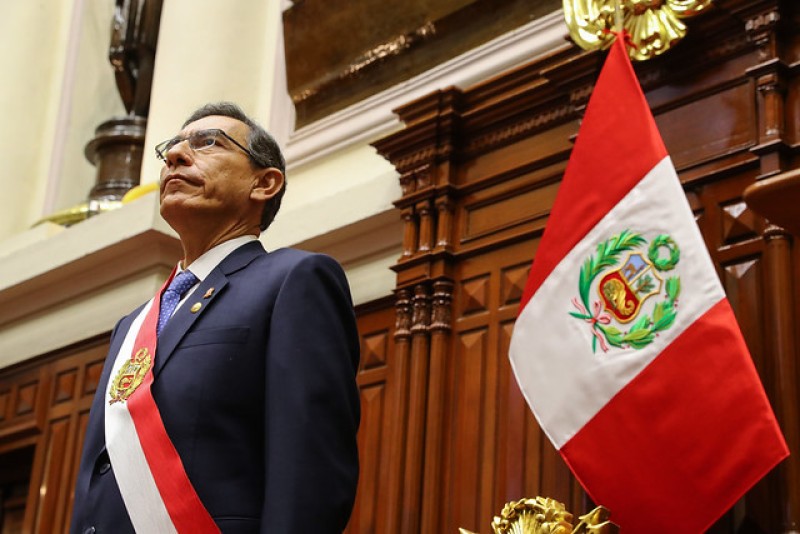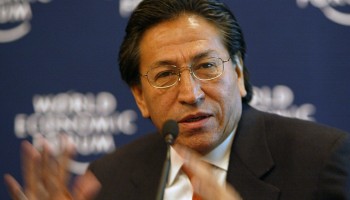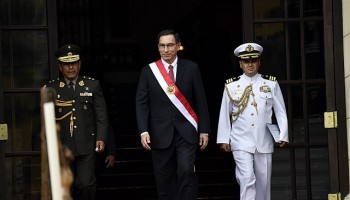During Peru’s independence day celebrations on Sunday, President Martín Vizcarra, who has spent the last few months struggling to get Peru’s parliament to pass strong anti-corruption legislation, delivered an alternative solution.
In his hour-and-a-half-long presidential address he called on congress to advance federal elections by one year, from 2020 to 2021, and give Peru an earlier opportunity to “start fresh” and elect a new government entirely.
The move is understood by many to be his latest attempt to disband a congress that is increasingly seen as self-interested and corrupt, though it will also mean cutting his own term short.
Prior to assuming office, Vizcarra was VP to former president Pedro Pablo Kuczynski, also known as PPK, who was pushed to resign last year over corruption allegations stemming from Brazil’s Lava Jato anti-corruption probe.
PPK is one of four past Peruvian presidents to have found themselves implicated in the world’s largest corruption scandal.
While he was being sworn into office last March, protesters in downtown Lima, frustrated with PPK and his party, chanted to “get rid of them all.”
As Vizcarra stylized himself a “people’s man” primarily focused on tackling corruption in the country’s legislature and judiciary, however, his approval ratings began to climb.
He has now spent the majority of his 16 months in power in battle with congress over the anti-corruption reforms he wants to pass, which include the introduction of provisions to bar corrupt politicians from running for public offices, introducing more regulations around campaign financing, and, most controversially, giving the judiciary greater authority to strip members of congress of immunity if they are suspected of corruption.
In December, Vizcarra put some of these issues up for popular vote in a national referendum, demonstrating that they had the support of 78% of the 23 million people who voted. Congress, however, has continued to impede their progress. After it "threw out" the proposed anti-immunity bill in May, Vizcarra threatened to dissolve the body altogether.
“The majority in parliament once again continues to turn its back to the citizens and cause damage to Peru,” he said in May, vowing to “take this struggle to the final consequences, because that’s what Peru deserves.”
In response to Vizcarra’s address on Sunday, Peru’s opposition, which holds a majority in congress, has accused him of stoking political conflict.
Pedro Olaechea, the majority leader in congress, framed the proposition as an attack on the sanctity of Peru’s democratic institutions, writing on Twitter, “Who wins and who loses in putting the country in a situation of uncertainty and instability?“
But Vizcarra maintains that the voice of the people should be heard.
“Let us recover the people’s trust and show the country that everyone, regardless of their political affiliation, is united in the fight against corruption,” Vizcarra said near the end of his Independence Day address.






